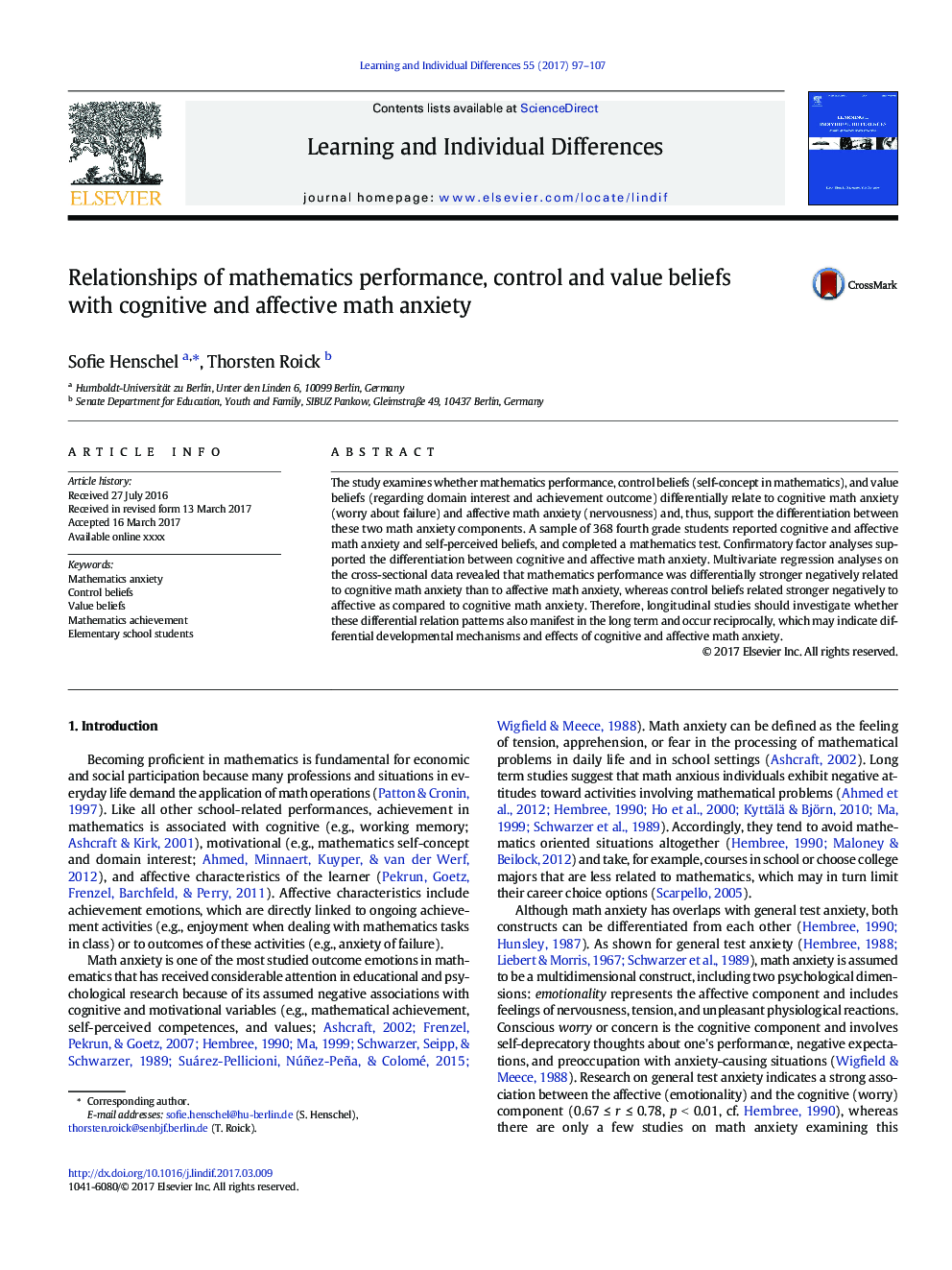| Article ID | Journal | Published Year | Pages | File Type |
|---|---|---|---|---|
| 4939982 | Learning and Individual Differences | 2017 | 11 Pages |
Abstract
The study examines whether mathematics performance, control beliefs (self-concept in mathematics), and value beliefs (regarding domain interest and achievement outcome) differentially relate to cognitive math anxiety (worry about failure) and affective math anxiety (nervousness) and, thus, support the differentiation between these two math anxiety components. A sample of 368 fourth grade students reported cognitive and affective math anxiety and self-perceived beliefs, and completed a mathematics test. Confirmatory factor analyses supported the differentiation between cognitive and affective math anxiety. Multivariate regression analyses on the cross-sectional data revealed that mathematics performance was differentially stronger negatively related to cognitive math anxiety than to affective math anxiety, whereas control beliefs related stronger negatively to affective as compared to cognitive math anxiety. Therefore, longitudinal studies should investigate whether these differential relation patterns also manifest in the long term and occur reciprocally, which may indicate differential developmental mechanisms and effects of cognitive and affective math anxiety.
Related Topics
Social Sciences and Humanities
Psychology
Developmental and Educational Psychology
Authors
Sofie Henschel, Thorsten Roick,
